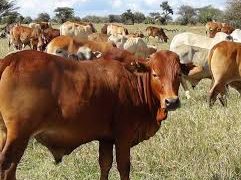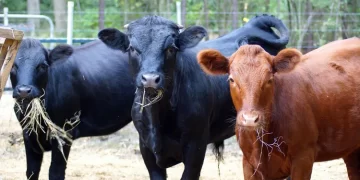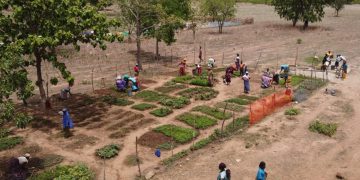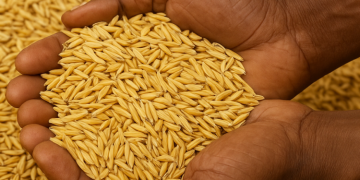The Ministry of Food and Agriculture (MoFA) has introduced a pilot climate modelling system designed to improve early warning capabilities and strengthen climate-smart agriculture nationwide.
Mr Eric Opoku, the sector Minister, announced the initiative at the Government Accountability Series in Accra on Monday.
He said more than 1,000 farmers in 15 regions were already receiving climate advisory messages through SMS and voice calls under the pilot, with the full rollout scheduled for early December.
The full implementation of the project would reach tens of thousands of farmers, he indicated.
“This model allows farmers to prepare adequately for rainfall patterns, temperature changes and potential weather disruptions,” he said.
Mr Opoku said the model was part of a broader climate intelligence framework that includes automated weather monitoring, digital advisory systems and community information dissemination. Twenty automated weather stations have been installed nationwide to provide accurate, real-time data for forecasting.
Eleven of the stations are located in Senior High Schools where climate clubs have been established to enhance environmental awareness among students.
Mr Opoku said a new Management Information System was being developed to integrate data from both manual and automated weather stations and improve the accuracy of forecasts.
To ensure wide access, the Ministry has partnered the Ministry of Communication to send free SMS alerts to farmers, while local radio stations, community information centres and extension officers provided updates in local languages.
The Minister said the climate intelligence system was further strengthened by the network of 70,000 community commodity-focused cooperatives, enabling rapid dissemination of information to rural farmers.
He highlighted the deployment of the EMA-i+ animal health surveillance platform, which allowed farmers to report livestock diseases in real time for rapid diagnosis.
He said the Ministry’s climate and weather monitoring initiatives marked a significant shift towards data-driven agriculture.
“With these systems, Ghana is entering a new era of climate-smart agriculture where technology and local knowledge work together to protect livelihoods and strengthen food security,” he said.





















































